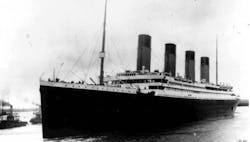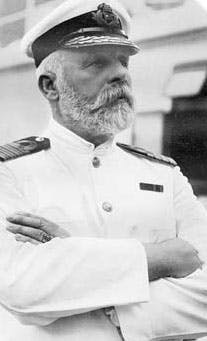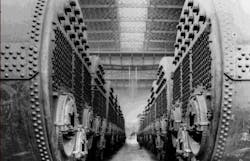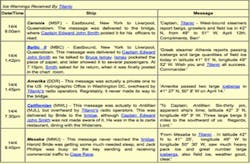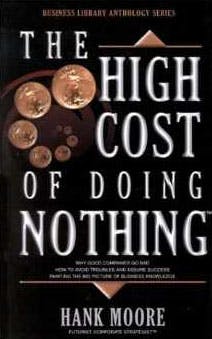A Titanic Disaster, That Could Have Been Avoided
April 15, 1912 marks the 102nd anniversary of the disaster that continues to captivate: the loss of the "unsinkable" luxury liner, RMS Titanic.
On that calm, cold night, the Titanic was pulled to the icy depths of the Atlantic Ocean, after striking an iceberg during its maiden voyage. Of the 2,224 souls aboard, a mere 705 survived.
The greatest tragedy associated with this legendary disaster, is that it could have been avoided, but for numerous human errors that were committed before and during the voyage.
"The Titanic is one of the most classic illustrations of that: had just one thing been different, the disaster wouldn't have happened," said Dr. Roger McCarthy, disaster analysis expert, Exponent, Inc.
"Saw much heavy pack ice and great
number large icebergs..."
— One of may unheeded warning cables.
Among those flaws were poor quality rivets, and steel with high sulphur content, which became very brittle at cold temperatures. The temperature of Titanic's icy waters? 28F. Other contributing factors are all too common in life today: rash judgement, pride, lack of adequate safety measures, and failure to heed repeated warnings.
HVAC Angle: MASSIVE Boiler System 29 steam boilers were installed in Titanic, to create the massive volume of steam required to move the great lady. 24 were double-ended (with fireboxes at each end), and five wereCritical Mistake: Too Few Lifeboats
Titanic only carried enough lifeboats for 1,178 people—slightly more than half of the number on board, and one-third her total capacity. And when launched, those lifeboats were filled below capacity.
HOW GRAND WAS THE TITANIC? This video from The History Channel tells you all you need to know about the dimensions of the massive ship.
Did Design Flaws Doom Titanic Before She Even Left the Dock? — Source: History Channel.
AVOID MANAGEMENT DISASTERS!
"I think the Titanic can be used as an analogy to business," wrote Hank Moore, corporate strategist, in TrainingMag.com, on the 100th anniversary of the disaster.
"The Titanic was a monument to human folly and arrogance. It started with pomp and potential. But it turned into a lot of what-ifs and missed opportunities. So, too, is the case with business, which should learn the lessons from the economic downturn and corporate scandals." Moore wrote.
Moore is the author of "The High Cost of Doing Nothing," in which he reveals that, "every year,According to Moore, on average, it costs six times the investment of preventive strategies to correct business problems (compounded per annum and exponentially increasing each year). In some industries, the figure is as high as 30 times...six is the mean average.
Moore believes the Titanic disaster could have been avoided if there were changes in management, planning, timing, supplies, and regulations. See his article here.
HOW DO YOU MANAGE YOUR BUSINESS? Do you plan ahead on calm days for weather that might require you to batten down the hatches at your business, or warn customers in advance of impending danger? We in the HVAC industry are weather watchers, aren't we?
Do you have sufficient supplies to ride out a disaster in your home and business — and the capital to withstand any financial disasters? Do you have a public relations plan in place in the event your company becomes the focus of a local incident?
And finally, do you follow industry regulations? HVACR professionals work with natural gas, fire, and electricity. Our technicians must be well-trained and must follow regulations at all times. If you think the industry needs more in a specific area, please do what you can to reach the proper gatekeepers for that warning.
DON'T LET YOUR BUSINESS become a mini-Titanic disaster. Plan ahead and work smart.
